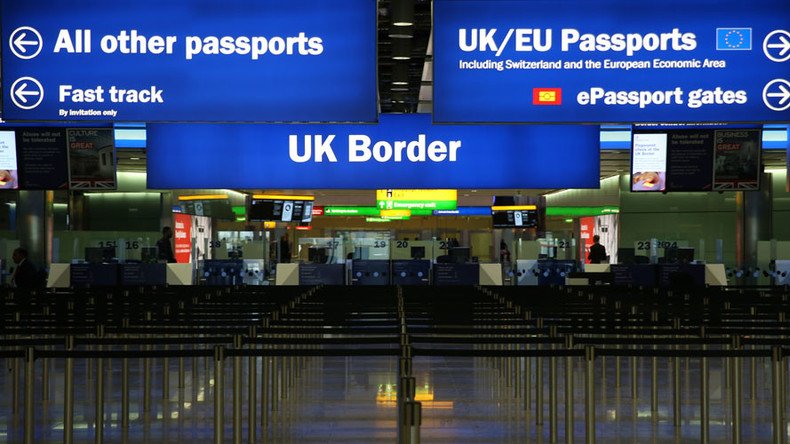Cutting immigration after Brexit would hurt British economy - report

Falling immigration in the event of a Brexit will make the UK’s economy smaller and British citizens poorer, according to a new study.
The National Institute of Economic and Social Research (NIESR) predicts the British economy would shrink by nine percent by 2065, while economic output per person would be about 0.8 percent lower.
The forecast, which considers the impact of a two-thirds reduction in immigration after Brexit, predicts taxes will also rise as a result of the shrinking economy.
#refugeeswelcome projected onto Dover's White Cliffs in protest of anti-immigration march https://t.co/FUZocJPTTVpic.twitter.com/Ef9gnnRtMi
— RT UK (@RTUKnews) April 1, 2016
Taxes would increase an average of £402 per person, to pay for rising healthcare and pension costs, it suggests.
There are currently 3.3 million EU migrants living in the UK and 2.1 million EU nationals working in the country, according to the Office for National Statistics (ONS).
A third of these EU migrants live in London.
NIESR researcher Dr Katerina Lisenkova said figures in the report were largely “illustrative” given the timescale of the predictions.
However, the report’s conclusion was that “lower migration has an overall negative effect on the economy.”
Net immigration to Britain in 2015 is over three times higher than govt target https://t.co/KBP2NGGLw2pic.twitter.com/BFp7uXcWuq
— RT UK (@RTUKnews) February 25, 2016
Although the report appears to support the Remain campaign, it also offers some credibility to Leave campaigners.
Lisenkova says limiting migration would have a positive effect on wages in the UK, particularly for low-skilled workers.
However, this positive effect would be offset by higher taxes, if taxation bands remain as they are. If the UK were to tax high earners more, low-paid workers would still be better off.












